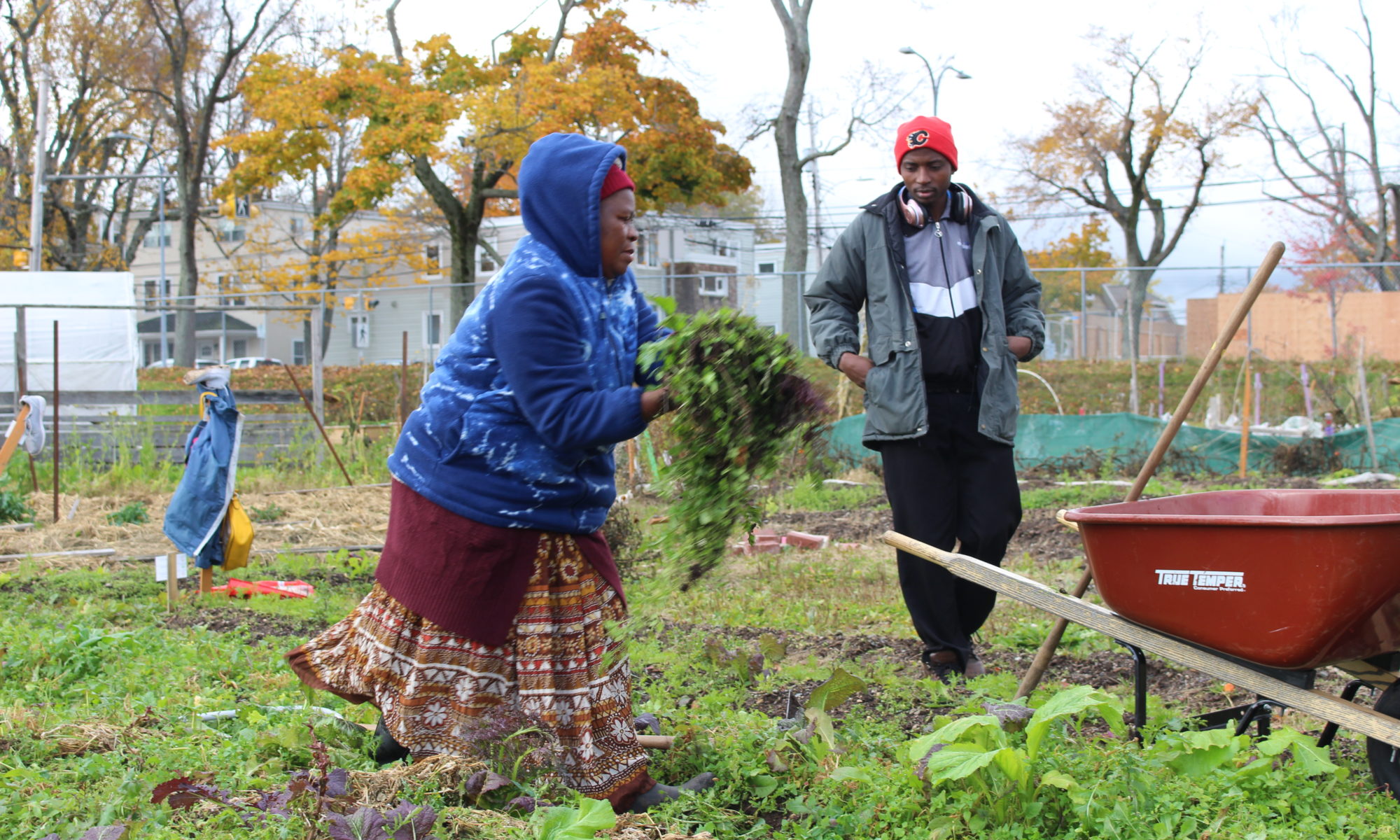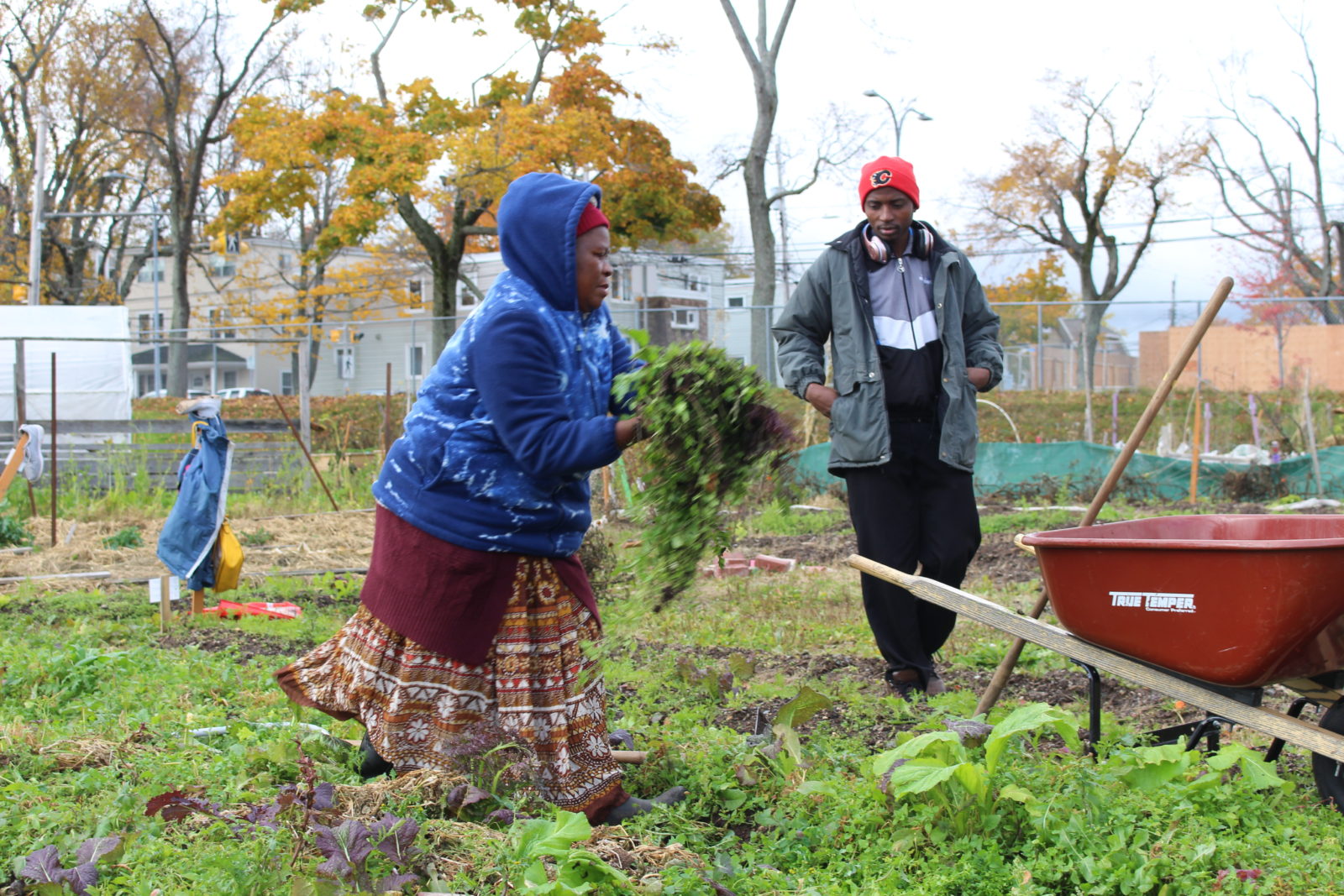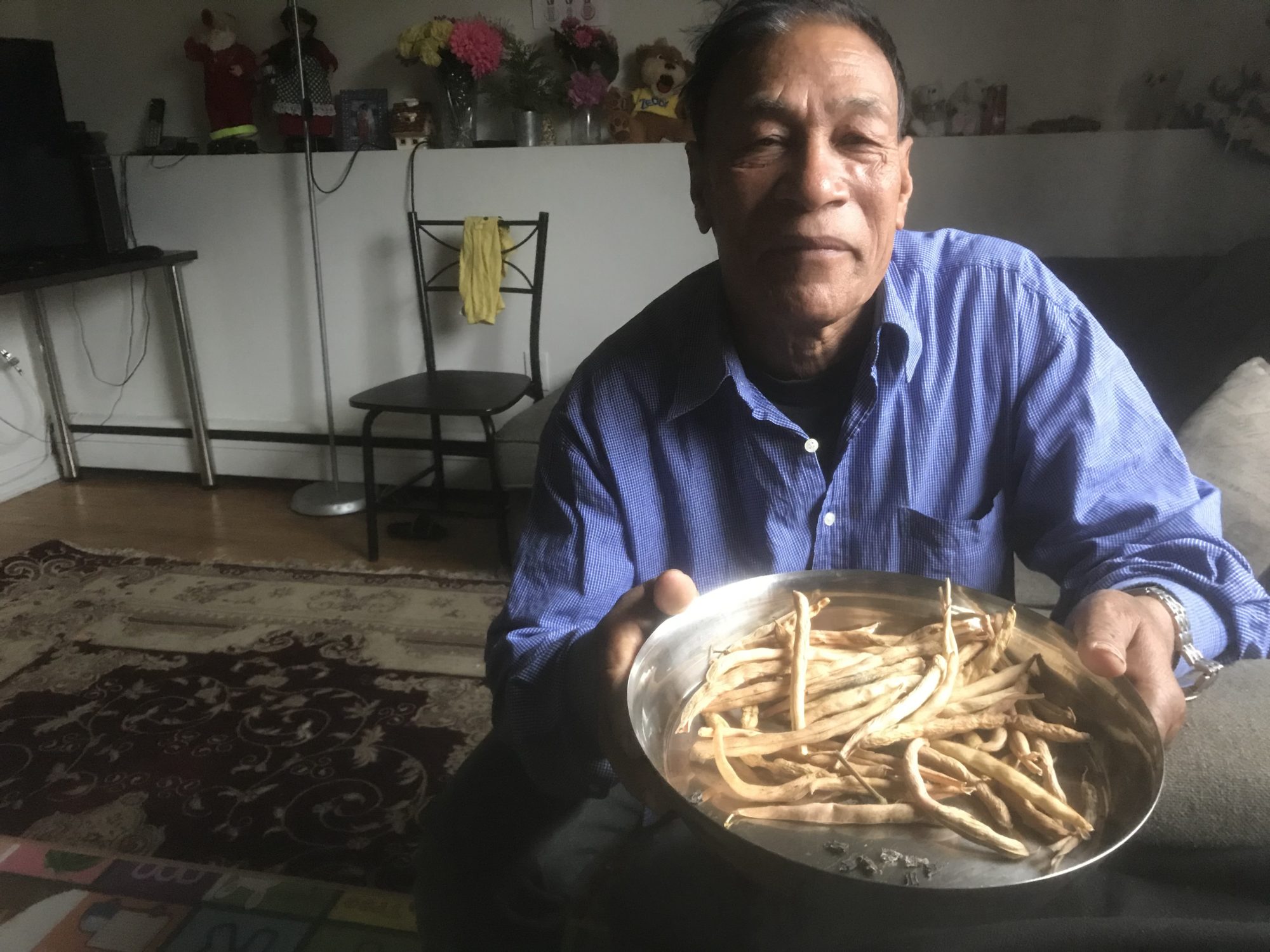
Putting down roots: How community gardens help immigrant retention
Cultural food security is key to how and whether immigrants take root in their new home. In Halifax, Common Roots Urban Farm was the only source of some traditional foods for newcomers, but the community garden was shut down and no one knows where – or if – it will rise again.

Chandra Bahadur Pradhan is sprinkling straw over rows of deep black soil in the heart of downtown Halifax. He has already harvested mustard, dill, chili, coriander, eggplant and pumpkin and finished the last of the precious chamsur, a leafy herb that is a staple of the diet in Nepal and Bhutan that can’t be purchased in any store in Halifax.
It looks like an act of reverence, the way he pulls at the bale and carefully scatters the strands, as if he is anointing the earth in preparation for winter. Chandra has had small farms in Bhutan and Nepal and, for the last two years, Halifax. This one is part of an experiment in providing commercial plots for farmers from around the world to provide food for their own immigrant communities. This final act in late fall will be the last time Chandra works this soil. The land is slated for a hospital expansion.
Research shows that immigrant retention rests on three pillars: the ability to find a good job, access to quality education, and a feeling that you are welcome and connected to your community. Cultural food security is emerging as a key part of that third pillar. It is not just the ability to get nutritious food that is crucial to successful settlement, research shows, it is the ability to find food that is familiar. Recent research from Canada, the United States and Australia has found that newcomers from Africa and Asia who participate in communal gardens are healthier than those don’t.
That research is being validated across Atlantic Canada, where community gardens are one of many supports anchoring new immigrants to their new land.
It will be very painful for me if I don’t have the farm. It will be very hard if we do not find another home for Common Roots.
Janet Miyonkuru
In Charlottetown, a third of the 150 gardeners at the PEI Legacy Garden are from outside Canada. They come from Iran, Pakistan, India, China, Syria and several countries in Africa.
In Halifax, signs along the path of the Common Roots Urban Farm have been translated into Swahili, Arabic and Nepalese. Common Roots has had gardeners from Bhutan, Ethiopia, the Democratic Republic of the Congo, Burundi, Syria, Rwanda, India and Iran.
Some, like Pradhan, are part of a government-funded program that gives each farmer a 325-square-foot plot and encourages them to grow crops for sale. Others, like Janet Miyonkuru, have a small personal plot.
Miyonkuru fled the Rwanda genocide in 1994 and came to Halifax as a refugee via Burundi, Tanzania and Uganda. She says that the garden transformed her life. She suffers from post-traumatic stress disorder and needed medication to function – until she started gardening. After a few months of digging the soil, she stopped medication. She says she was fine.
“It will be very painful for me if I don’t have the farm. It will be very hard if we do not find another home for Common Roots.”
Her most important crop? Lenga-lenga, a vegetable that is a staple in many African countries and that can’t be purchased in any store in Atlantic Canada.
But it could be purchased at Common Roots, where Imelde Nduwimana, who is originally from Burundi, and Dorcas Nkobwa, of the Democratic Republic of the Congo, tended one of the market gardens. This summer more than 25 families bought lenga-lenga from their plot.
The market garden program was launched in 2014. The first farmers were all from Bhutan.
Sunisha Neupane is a Nepali woman who translated an interview with Pradhan. She says she went 14 years without chamsur, until Bhutanese refugees started to grow it at Common Roots. Asked what it was like to taste it again after so long, she said, “Good, so good.”
Many of the Bhutanese farmers have left Halifax for Ontario [see related article]. Rupesh Dhungana says that the fertile hill beside busy Robie Street is one of the reasons that some stayed.
“Seventy percent of our people were farmers, but when we came here, no one recognized their skills,” he says. “That community garden is keeping them. It’s not a small thing for them. They love working in the soil. They love the smell of the soil.”
I get exercise. I see friends, I earn some money and I get good, healthy food.
Chandra Bahadur Pradhan

Pradhan lives on the ground floor of a low brick apartment building surrounded by bare grass and a chain-link fence that has sagged and warped into a piece of modern art. This is the heart of Clayton Park, a neighbourhood that is the first stop for most newcomers to Halifax. Nova Scotia’s multicultural numbers are still very low overall, but not here. The bank in a nearby strip mall boasts service is available in 11 languages: English, French, Arabic, Greek, Mandarin, Hindi, Kannada, Tamil, Korean, Spanish and Vietnamese.
Pradhan, 72, shares his apartment with his wife, daughter and two granddaughters. His son, daughter-in-law and two children live in the same building across the hall. In the summer, he was at his downtown farm up to four days a week, spending more than an hour a day on the two-bus commute.
“I am a farmer and I enjoy this kind of work,” he says through an interpreter. “I get exercise. I see friends, I earn some money and I get good, healthy food.”
Common Roots was started in 2012 on land exposed after a local high school was torn down. It launched the commercial market garden two years later. Organizers always knew it was a temporary location, but that hasn’t made this year’s final season any easier.
A huge amount of social good comes out of Common Roots.
Halifax Mayor Mike Savage spends a lot of his political energy promoting immigration to his city. Asked if Common Roots is important to immigrant retention, he says, “Absolutely.”
He refers to a “food revolution” in Halifax, and says that new Canadians are driving it.
Common Roots is not funded or run by the city, but Savage wants it to keep going and stops just shy of promising that he will do so.
“I want to see it continue and if the city has to play a role in it, then we will play a role in finding it a new place,” he said. “The work they do there with new Canadians and people with disabilities … a huge amount of social good comes out of Common Roots.”
Pradhan does not seem particularly worried about the future of his farm. He has saved his seeds and is ready to resume when the ground begins to thaw. He hopes that the new garden will be closer to those who use it the most: in Fairview or Clayton Park. If they don’t get it set up for 2019, he’s sure he’ll find somewhere to plant.
“Common Roots is like my life,” says Pradhan. “If I go there, it makes me happy. They should find more land. There are lots of Nepali seniors here whose background is farming. Maybe we can grow food for the whole community, if we have more land.”
Changes to Atlantic Immigration Pilot praised, but more are needed
Atlantic Immigration Pilot by the numbers: PR admissions lag job offers and work permits
Pulling up roots: Bhutanese exodus from Halifax offers clues to why newcomers stay or go
This article is part of PPF’s three-year Immigration and Atlantic Revitalization project. Get our newsletter to keep up on the latest research.
Kelly Toughill is a consulting researcher with PPF, specializing in immigration policy. She is an award-winning journalist and Associate Professor of Journalism at the University of King’s College in Halifax, and is also the founder of Polestar Immigration Research.





